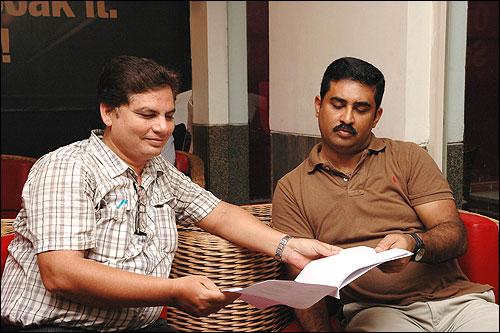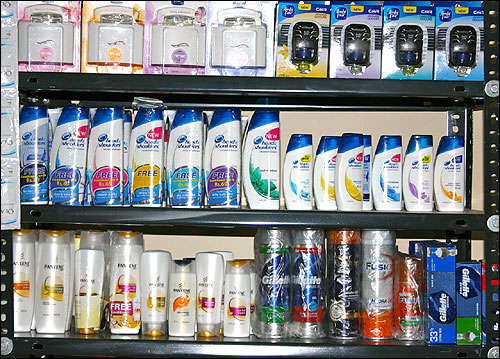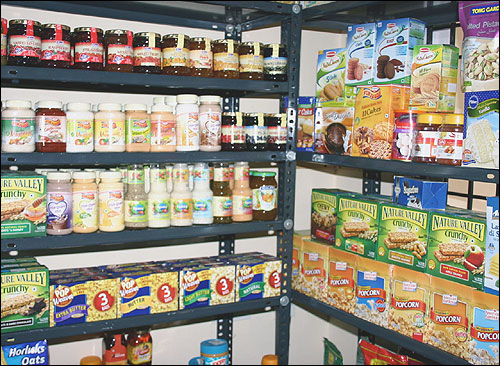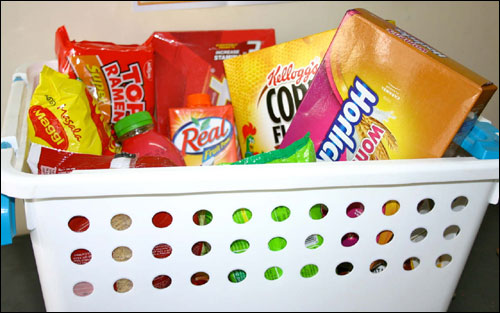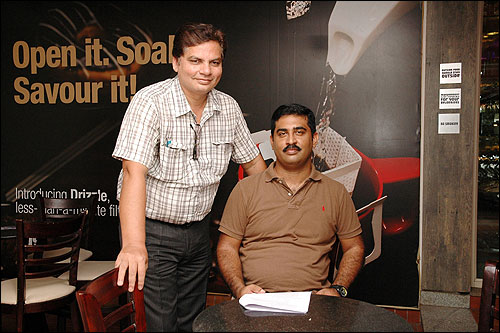 | « Back to article | Print this article |
Chennai can now shop online for grocery
When old classmates of REC (now NIT) Kurukshetra, Ajeet Kumar from Bihar and Rajesh Joseph from Kerala met in Chennai years after they graduated, they decided to step into a sector that was not really mature in Chennai and started stork.net.in, an online grocery store.
Though this was a joint effort, it was not their first business ventures.
In fact, after graduating in 1994, both moved to Chennai from Kurukshetra. Ajeet joined Ford and Rajesh opted for Schmenger Leder Gmbh, a German company that specialised in leather.
Though Rajesh had dreams of becoming an entrepreneur after completing his studies, Ajeet confessed that he didn't even know the word 'entrepreneur' way back in 1994. "If I had the knowledge, I would have become one much earlier."
"Unlike today's youngsters, we are a generation behind. Our studies were more theoretical. Our dreams centred around getting a job in an MNC and making our lives secure. Nobody wanted to plunge into risky entrepreneurship. The economy had just opened up and the IT boom was about to start. Though the word entrepreneur had not caught up with college students, I was attracted to it," Rajesh said.
Click on NEXT for more...
Chennai can now shop online for grocery
No wonder Rajesh quit his job of 7 years with Schmenger Leder Gmbh in 2003 to start his own business venture, Nova International, with two other partners. It had 20 employees and an average turnover of euro 5 million per annum.
After working with Ford for more than six years, Ajeet tried his hand at a couple of failed ventures before starting his own software company Ayushi Infotech that focuses on custom application development mostly for the US market. Today, it has 10 employees and a turnover of around Rs 1 crore.
Though both of them were in Chennai, they had never crossed each other's path for 17 long years. And it was on Facebook that they again met."When we met, we found that both of us were passionate about entrepreneurship and we wanted to do something together," they said.
Click on NEXT for more...
Chennai can now shop online for grocery
Ajeet was keen to enter the retail space. Rajesh also felt that retail, though yet untapped and disorganised, is one sector that has huge potential. "We felt it was the right time to plunge into this sector. With Ajeet's experience in the software sector, we felt we had an advantage," Rajesh said.
"E-commerce in India had touched Rs 50,000 crore (Rs 500 billion) last year and is the third largest sector. It is touted to grow 25 per cent every year. Though contribution of grocery is insignificant at this point of time, I believe grocery e-tailing (electronic retailing) will capture 10 per cent market share in another 10 years," Ajeet opines.
Having decided on entering the retail sector, they chose Chennai as the base, mainly because both were based in the city.
"Also, online retail is not as developed in Chennai as in Bangalore, Mumbai, Delhi or Chandigarh. It's a very nascent market in Chennai. So, one of the early movers, we thought we could have the advantage."
Click on NEXT for more...
Chennai can now shop online for grocery
Their target, "the Global Indian, those who has travelled around and tried different cuisines...from that perspective, Chennai has a huge such population."
The idea was conceived in October 2011 and by June 2012, everything was in place. Thanks to their other ventures, the duo did not need any outside funding. They put in Rs 12 and a half lakh each with 50 per cent partnership in the venture and started Stork.net.in. Over a period of one year, the investment will go up to Rs 35-40 lakh.
Fifty per cent of the initial investment went into buying goods, 30 per cent on operational costs and the rest on logistics.
The beginning was with friends, colleagues, etc. and then they started campaigns through SMS and emails.
"The moment we launched, customers started visiting us online and ordered stuff. In fact, they also gave us their feedback.That was how we started cash on delivery, even use card on delivery. It is the feedback of the customers that make us add new features. We also add newer products as per the demands of the customers. Everyday is a learning experience," they add.
Click on NEXT for more...
Chennai can now shop online for grocery
The first month had 500 customers buying online and 90 per cent of them were IT professionals, say the founders. Now, they have 1,000 customers buying once in a month which they want to convert to weekly buyers. With the introduction of vegetables and fruits, personal care and home care items, they expect the frequency to go up.
"We never thought fruits and vegetables would be the most attractive feature of an online store but to our surprise, we have found it to be so."
Now, they are taking efforts to tie up with big IT companies which have thousands of employees. "The tie-up is such that we can deliver the products either to their cars or buses so that the employees can take home the stuff in the evening. It saves them time and energy after office hours. We also plan to have a vehicle with goods outside the offices so that the employees can pick up their stuff on their way back."
From the first month to the second, the turnover has gone up from Rs 300,000 to Rs 800,000.
Future plans: "Our target is to cover a customer base of 10,000 in the next one year which means around 400 deliveries a day, and a turnover of Rs 4 crore a month, and more cities too."
